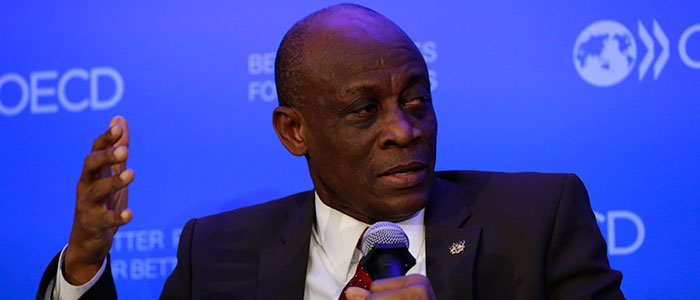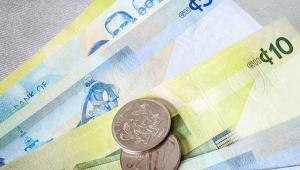web_Seth-Terkper_OEDCAndrewWheeler_17018017661_2cd6d3d01b_o.jpg

Ghana's finance minister Seth Terker - credit: Andrew Wheeler/OECD
Earlier this month, Ghana’s lawmakers passed the Bank of Ghana Amendment Bill, reducing the ceiling for central bank financing of the government’s budget deficit from 10% to 5%.
The IMF had insisted that the law be amended so the central bank played no part in financing the deficit. It made this a key requirement for the country to pass the third review of its performance under the three-year deal and for the release of the next tranche of funds.
In a statement published yesterday, Joel Toujas-Bernate, IMF mission chief for Ghana, said IMF staff were now working with the Ghanaian authorities to “update macroeconomic projections” and “firm up the fiscal outlook for the remainder of 2016” in light of the change.
Staff will also be seeking to confirm that emerging financial pressures in Ghana’s state-owned energy enterprises “will not pose additional risks to the central government budget”.
“Subject to a quick and positive conclusion of these discussions, staff expects the third programme review to be considered by the IMF executive board around mid-September.”
Ghana appealed for help from the IMF in April 2015 after efforts to bring down its budget deficit and high public debt ran in to difficulty.
Toujas-Bernate said that a visit to the country last May had found implementation of the programme to be “broadly satisfactory” but identified a number of areas were further work and discussion were needed before the third review could be passed.
Since then, he noted that a several important bills had been adopted, including a public financial management law.
Last week, Ghana’s finance minister Seth Terkper said the IMF’s aid means Ghana is on target to halve its budget deficit this year, from an overall fiscal deficit of 10% at the beginning of the programme.
He also highlighted that public debt had fallen to 63% of GDP in May, down from 72% at the end of 2015 as a result.
Inflation, which stood at 19% in January, has now dropped to 16.7%, he continued. At the start of its programme with Ghana, the IMF cited the central bank’s financing of the deficit as putting pressure on inflation, as well as the depreciation of Ghana’s currency.













